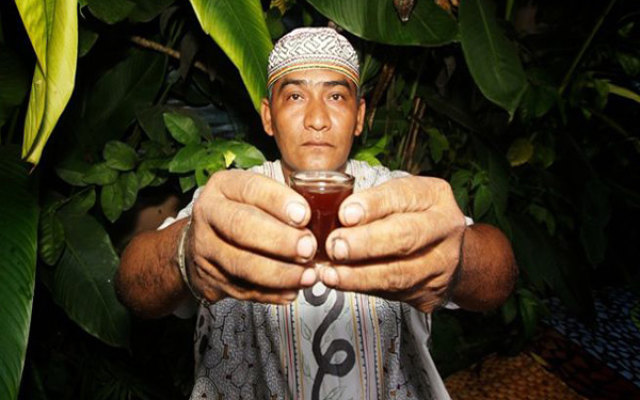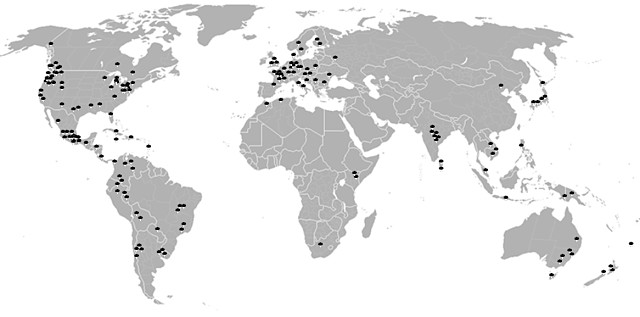Medicinal cannabis legalisation opens gateway for psychedelic research

With the wider acceptance and commercialisation of medicinal cannabis, the door has been opened for the research and legalisation of psychedelics.
Natural medicines are continuing their foray into commercial markets, with the next contender potentially being psilocybin mushrooms, colloquially known as “magic mushrooms” or “shrooms”.
Several organisations around the world are carrying out scientific research into the safety and efficacy of treating various mental conditions including depression, anxiety and phobias, with psilocybin mushrooms.
Results have been similar to other natural remedies such as cannabis – indicating there may be a case to be made for shrooms to be released from their extended government-imposed captivity into the commercial wilderness of world markets.
The emergence of cannabis as both a medicinal drug and a recreational pastime is taking the world by storm. Canada, the US and Australia are leading the field by easing existing prohibition and making the once-forgotten plant available for various types of consumers in recent months.
So, can magic mushrooms walk the same path towards alleviating a raft of illnesses while serving up a commercial opportunity for a new breed of pharmaceutical companies?
The answer, it seems, is yes.
Psilocybin to the rescue
The drive towards natural remedies could soon see yet another big hitter from the plant kingdom entering the commercial landscape: psilocybin-packed magic mushrooms.
Magic mushrooms contain a variety of psychedelic compounds, including psilocybin, psilocin, and baeocystin and boast a wide range of health benefits that scientists claim can be safely harnessed and sold to patients on a mass scale.
According to research published in 2013, based on over 20,000 users, researchers found that the use of psychedelics was not a risk factor for mental health problems.
Many other researchers studying all sorts of psychedelics have also discovered the same: natural plants and fungi are not inherently dangerous – they only pose risks when misunderstood and misused by naïve users.
Most recently, the psychedelic drug research community was given a huge official boost by the US Food and Drug Administration (FDA), after the US regulator approved psilocybin for what’s known as “breakthrough therapy designation” to life sciences company COMPASS Pathways, backed by PayPal co-founder Peter Thiel.
COMPASS (one of its major stakeholders being Atai Life Sciences) has already begun the first large-scale psilocybin therapy clinical trial in Europe and Northern America with results eagerly anticipated over the coming 12 months.
According to some estimates, there are at least 100 million people worldwide suffering from drug-resistant depression, with these numbers growing every year – potentially because synthetic opiates are hitting a dead-end in their effectiveness, especially over extended periods of use.
The FDA’s classification is therefore significant because for the first time in modern history, psilocybin is being seen as a genuine pathway towards treating ailments such as drug-resistant depression.
The FDA awards this classification for treatments that have demonstrated significant potential in early clinical evidence and thereby means the FDA is ready to assist and expedite subsequent development, including periodic reviews and further approvals based upon ongoing clinical evidence.
The efficacy challenge
A raft of research done by the Multidisciplinary Association for Psychedelic Studies (MAPS), a non-profit research and educational organisation based in the US, has found psilocybin (as well as other psychedelics such as LSD, peyote, ayahuasca and ibogaine) to be generally safe – although a lot does depend on how users interact with their psychedelic of choice, especially the dosage and setting.
MAPS researchers have concluded that MDMA, technically known as “methylenedioxymethamphetamine”, is yet another psychedelic drug, considered useful in treating a range of mental conditions, with post-traumatic stress disorder applications already being studied.
Following a phase 2 MAPS study into “MDMA-assisted psychotherapy”, the non-profit organisation plans to take its research into FDA phase 3 clinical trials. The results of the phase 2 study showed that 76% of subjects showed stark improvement and did not meet the standard clinical criteria for PTSD, 12 months after starting the treatment.
This latest study is one of six key phase 2 clinical trials that were used to last year to convince the FDA to grant the landmark MDMA-assisted treatment a Breakthrough Therapy Designation.
Its phase 2 study treated 136 people, and phase 3 is likely to involve up to 300 subjects with PTSD in the US, Canada and Israel. Phase 3 got underway earlier this year and is expected to take four to five years to finish, making MDMA treatments up for FDA review in around 2021.
As part of a Global Drug Survey conducted by its core research team Dr Adam Winstock, Dr Monica Barratt, Dr Jason Ferris and Dr Larissa Maier last year, only 5.2% users report having a “negative experience” after taking psychedelics.
In recent decades, international researchers have been exploring the effects of a basket of psychedelics on brain function as well as their potential use as a treatment for substance abuse and other disorders.

A shaman holding the ayahuasca brew at a ceremony.
Although preliminary, current research suggests that when administered in therapeutic settings, natural substances such as magic mushrooms and ayahuasca may help reduce problematic substance use by helping promote personal or spiritual insights or self-knowledge.
Researchers have found that the wide spectrum of psychedelics can have “mind expansive” effects and induce a deeper understanding of the world. In terms of more practical benefits, they have been proven to help reduce anxiety, alleviate PTSD and can be part of palliative care in terminally ill cancer patients.
Palliative care patients at Melbourne’s St Vincent’s Hospital will soon be treated in a trial with the psychoactive ingredient in magic mushrooms in a bid to reduce their anxiety during end of life care.
The 30 patient trial is set to begin in April of this year.
Mushroom where art thou?
For those looking to obtain direct access to mushrooms without the assistance of supportive agencies, authorities, suppliers or distributors, the following map shows where they grow naturally around the world (typically in forests or lowland areas):

Global distribution of 100-plus psychoactive species of the genus Psilocybe mushrooms.
Those seeking out these “mind-altering fungi” should take heed of both the risks (as well as the potential rewards) of consuming them.
According to TripSafe, an independent educational source of information about psychedelics including psilocybin mushrooms, users are encouraged to make sure they have no existing health conditions that could potentially disrupt, augment or conflict with the effects of magic mushrooms.
Also, users are advised to avoid taking other medications, especially artificial opiates or pharmaceuticals (including common substances such as alcohol).
TripSafe suggests users “start with around 0.8 grams of dried mushrooms, or less” and to have a “trusted, experienced, sober guide who is willing to remain with the user for at least eight hours”.
Last but not least, TripSafe advises users to “choose a safe, pleasant and familiar environment” while being in a “good mindset” with the absence of any acute trauma or depressed state of mind.
Further tips are provided by the Global Drug Survey’s “High-Way Code”, a step-by-step path to assisting psychedelics users: “People vary widely in how they respond to drugs and how much they need to take. Everyone has to find their own ‘right dose’,” according to the GDS.
The agency also says that “remember being greedy is not good for you – less is more.”
Flying towards psychedelic legalisation
Psychedelics are undergoing a renaissance after decades spent in the legislative shade and banned outright from being grown, distributed, or even studied as part of human scientific research.
One area that is still in its infancy is the practice of using very small doses of psychedelics such as psilocybin-infused mushrooms to improve mood and cognitive performance.
Research conducted so far, indicates that psychedelics are safe and will not mean a trip to the loony bin for every user – a misconception that has been parroted by mainstream media sources for decades which has, in turn, put mushrooms in the same bracket as cannabis.
Early stage investigation into medicinal cannabis has shown that cannabidiol (CBD) and tetrahydrocannabinol (THC) both have potential to assist a wide range of conditions.
So too, with psychedelics, including magic mushrooms and ayahuasca – two naturally-occurring plants, that are in many ways, walking in cannabis’ footsteps towards decriminalisation, and possibly, eventual legalisation that first begins with medical applications.
At first, it may not be obvious how a drug that makes users see fractal geometry and perceive the world around them from a completely different perspective, could possibly improve cognitive performance, reduce anxiety or depression.
However, it may just be the case that by opening pivotal connections between parts of the brain that don’t usually communicate, psychedelics could hold the key to helping people overcome their challenges and improve their ability to accurately interpret reality.
The state of Oregon is leading the way in the US, with a vote set to take place on whether to legalise psilocybin mushrooms for therapeutic use in 2020.
